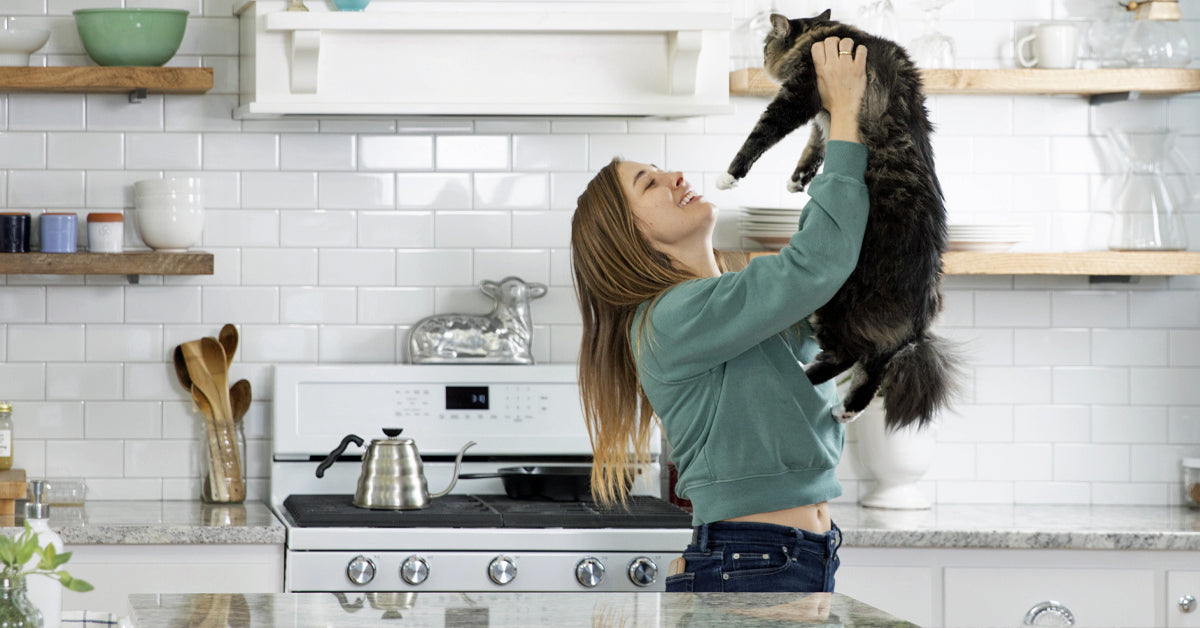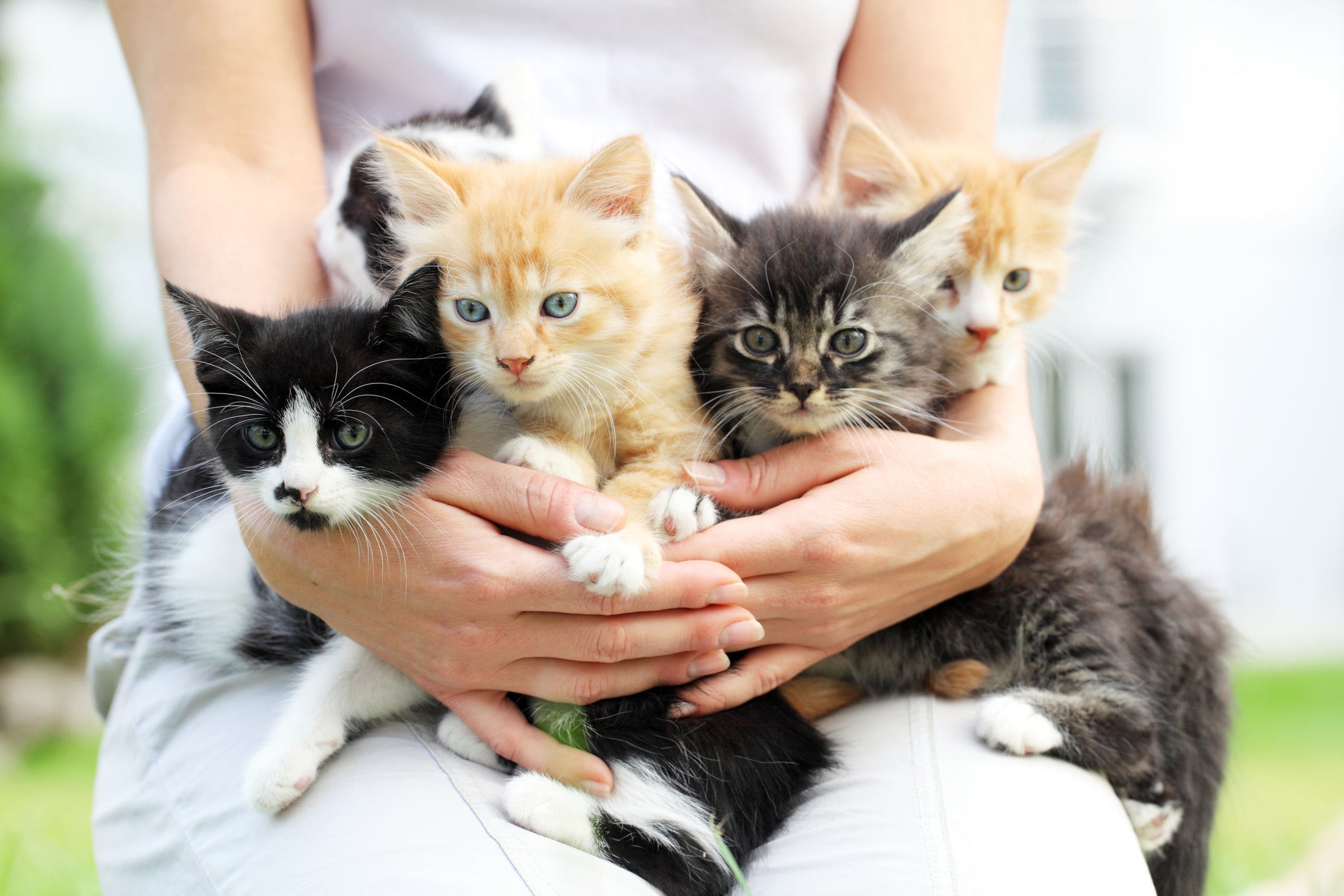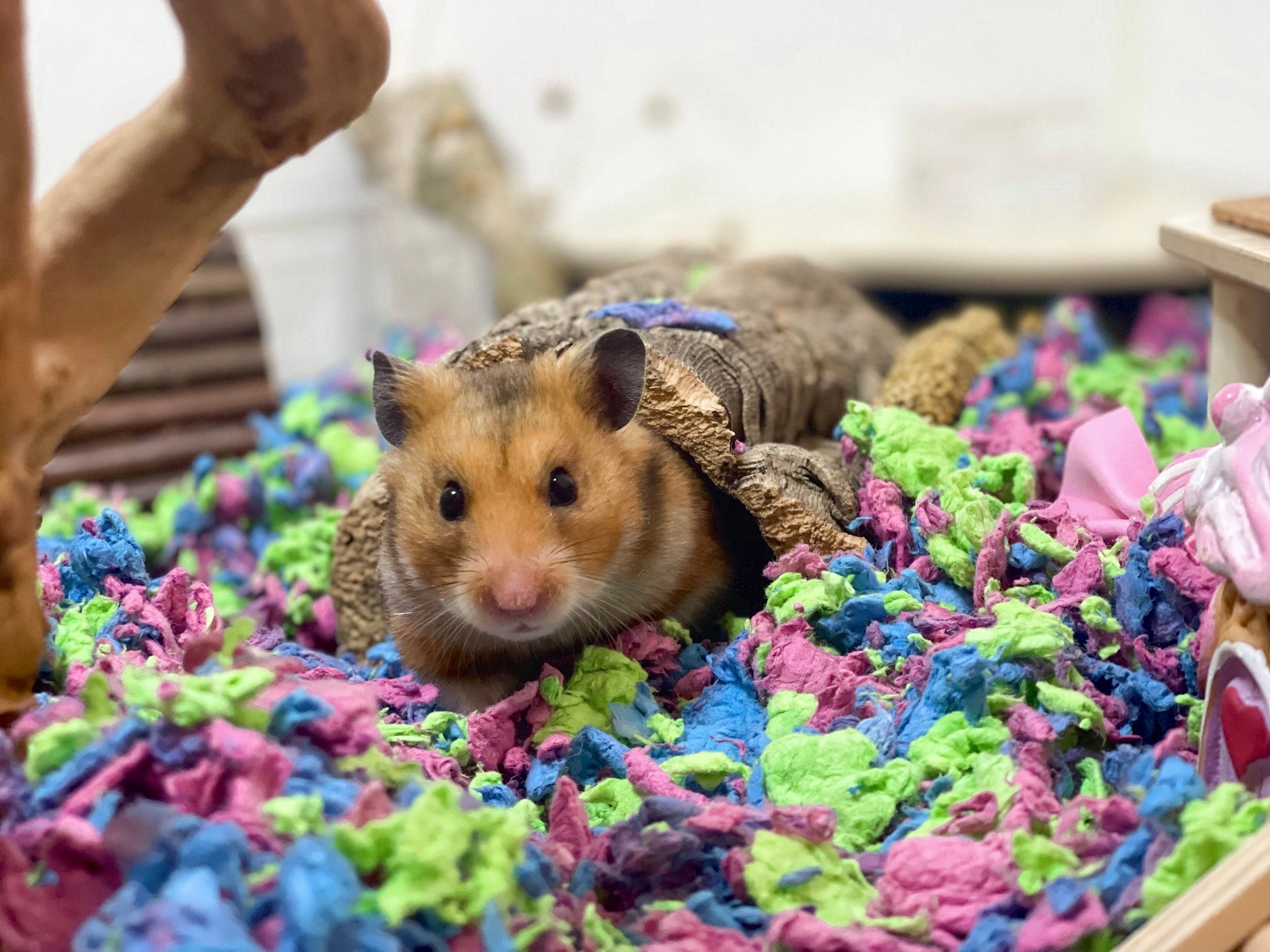
6 Ways to Keep Your Cats Healthy
Don’t Skip Check-ups
Annual examinations are the best way to detect medical problems early and to ensure your cat is protected against preventable diseases. We take our kids to the pediatrician for wellness visits, so why should our cats be any different? Cats get sick too. They suffer from many of the same illnesses we do, like obesity, diabetes, thyroid disease, and kidney disease. And cats can’t talk and tell us when they are sick. To make matters worse, they are masters at hiding illnesses. You may not notice any signs or symptoms until the disease is very advanced. That’s why routine physical examinations are so important. They allow your veterinarian to check your cat from head to tail for subtle signs of illness. Your vet can also utilize screening tests to detect diseases early and to start treatment promptly. The fact is bringing your cat to the vet at least once a year for a check-up is the best way to be ensure your cat lives the healthiest, happiest life possible.
Keep Vaccines Up to Date
Cats can be exposed to a number of different infectious diseases, even if they live indoors. Upper respiratory infections can be carried on your clothes or shoes or can spread through an open window or screen door. Not to mention that even indoor cats can sneak out. Although strictly indoor only cats may require less vaccines than outdoor cats, the fact remains that indoor cats may benefit from vaccines that protect against the upper respiratory viruses: feline rhinotracheitits, feline calicivirus, and feline panleukopenia. In addition, some states require cats to be vaccinated against rabies. Speak with your veterinarian to find out what vaccines are appropriate for your particular cat based on their age, lifestyle and risks.

Don’t Forget About Parasite Control
Unfortunately, even indoor cats aren’t immune to parasites. Pesky bugs like fleas can be brought into your home by your dog or rodents. You can even move into a house with an existing flea problem. Fleas in the pupa stage can remain dormant for months. In addition, mosquitos transmit heartworm disease and we all know how easy it is for them to get inside. Just because your cat doesn’t go outside don’t assume they are safe from parasites. Be on the look out for parasites and speak your veterinarian about parasitic screening tests and preventative medications that might be appropriate for your cat.
Microchips Are a Must
All pets, even strictly indoor cats, should have microchips and ideally collars and ID tags. What happens when your cat sneaks out an open door or window, or worse yet, gets lost during an earthquake, hurricane or tornado? They become an outdoor cat with no identification! Collars and tags allow a neighbor to return your cat directly to you, but unfortunately, collars can break or fall off. Microchips provide a more reliable means of identification. Of course, for them to work, make sure you register and keep your contact information up-to-date.
The fact is accidents happen and it is always better to be safe than sorry. Being sure your pet has proper identification (collar, tag and microchips) is the best way to improve the odds that your pet will be returned home if they ever get lost.
Get Your Cats Moving
All animals, even cats, benefit from exercise. Exercise is the best way to keep your cat trim and healthy. Like us, cats can suffer from obesity and the problems associated with being overweight such as arthritis and diabetes. You can keep your cat active by playing with a laser pointer. Most cats love to chase a laser pointer (and most humans find this entertaining too). Some cats can also learn to play fetch. The goal is to find the toy or activity that gets your pet moving. Don’t be afraid to ask your veterinarian for ideas and help getting your lazy cat off the couch.

Keep Cats Indoors
The decision to keep your cat indoors is probably the single most important action you can take to promote the health and longevity of your feline friend. The average lifespan for an outdoor cat is just 3 to 5 years, while indoor cats average 12. This huge difference in life expectancy should be a compelling enough reason for all cat parents to keep their feline friends indoors. Outdoor cats are at risk for getting hit by a car; being attacked by a dog or coyote, getting into a fight with another cat; ingesting poisonous chemicals such as rodenticides, insecticides, snail bait, or antifreeze, and are more likely to get parasites and infectious diseases like feline leukemia virus (FeLV), feline immunodeficiency virus (FIV), and feline infectious peritonitis (FIP). The fact is once your cat is outdoors, there is no way to protect them from all of these dangers.
Make sure to use a natural cat litter like okocat, that's cleaner and healthier for your cat with less dust and no harmful chemicals or added perfumes.
See also >>> Clean & healthy litter that stops odor
As pet parents, besides loving our pets, our responsibility is to care for them and protect them from harm. What can you do to insure your cat lives out his nine lives? Make sure your cat has regular veterinary check-ups, stays up-to-date on their immunizations and parasite control, gets regular exercise and stays safely indoors.
The makers of okocat® natural litter are not only dedicated to making the best cat litter, they are also committed to helping cats live longer, healthier lives. By providing educational articles like this one, they hope to educate pet parents about important cat health topics.









